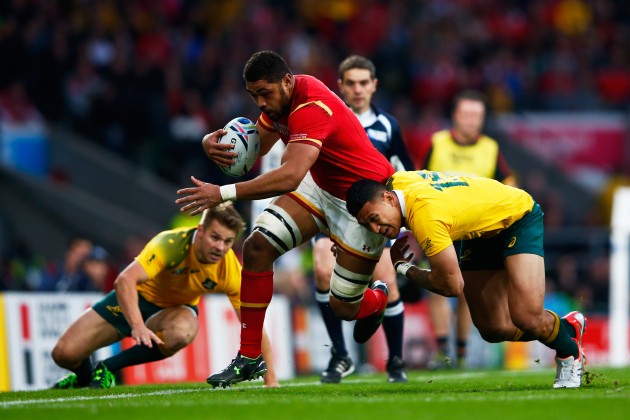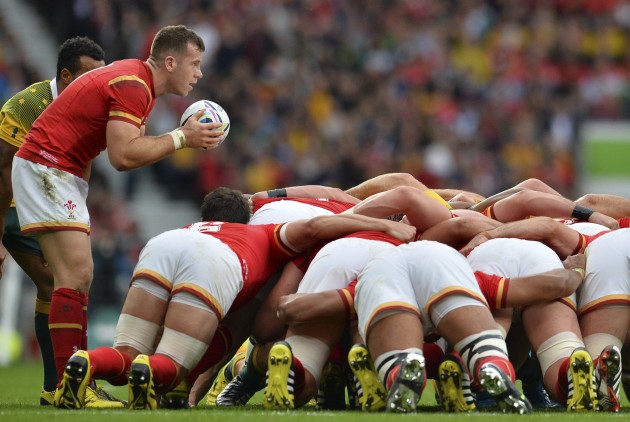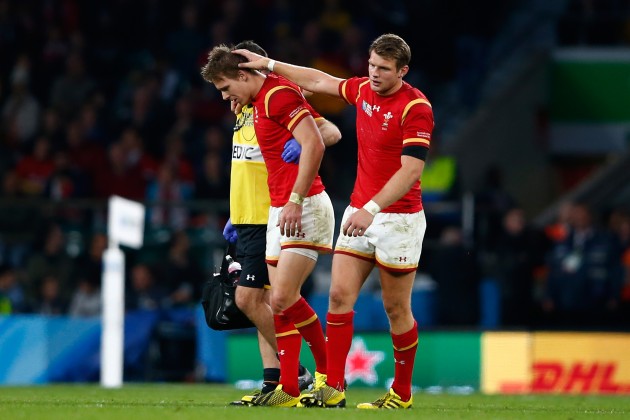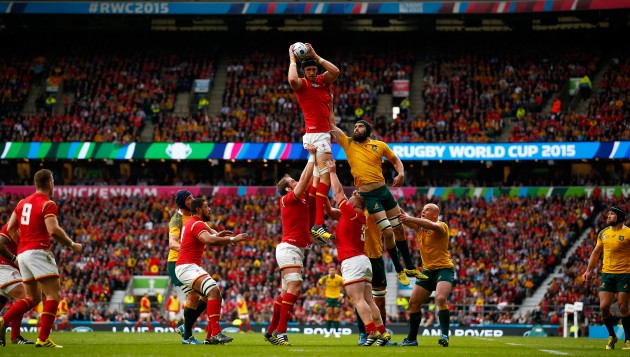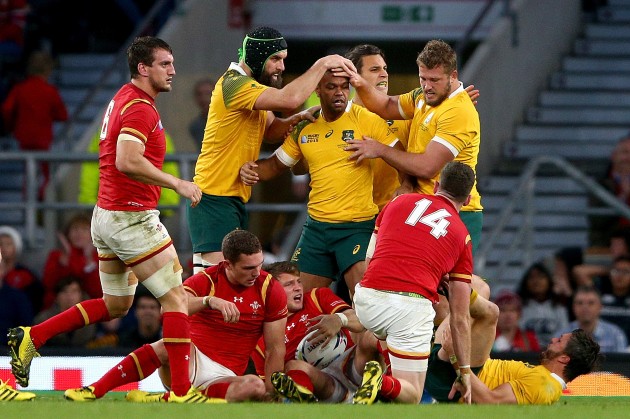Wales lost 15-6 to Australia in a tightly fought contest but despite struggling to break the Wallabies down, there were positives to take...
It is possible to play well, and lose
Rugby is a notoriously complicated game. Yet with laws that sometimes require the use of IBM’s ‘Deep Blue’ computer to decode them, often, the outcomes of games are over simplified. Put simply if you won you played well, if you lost you played badly. But this isn’t always the case and is exactly what occurred when Wales were beaten 15-6 by Australia. Yes, Wales lost but despite the immediate post-match gloom it doesn’t mean they played badly and doesn’t mean they can’t beat South Africa. Wales dominated the bulk of the key performance indicators with 60% of the possession and 63% of the territory. They forced Australia in to making 123 tackles compared to Wales’ 69. Wales crossed Australia’s try line three times – admittedly where they failed to ground effectively. With Luke Charteris back in the starting XV, Wales managed to stem Australia’s highly impressive maul.
The Welsh backrow competed effectively with arguably the best backrow in the tournament – and punished high carrying Australian body angles with as an effective demonstration of ‘choke tackling’ as you’ll see. The Welsh backs managed to shut down the Wallaby backline, keeping their carrying beneath a combined total of 180 metres – Israel Folau usually carries 130m, solo. There were of course a few downsides which can’t be ignored. The 15 minute period where Wales failed to score a single point against the 13-man Wallabies will have vexed Warren Gatland. Some may argue that Wales should have kicked their three pointers instead of opting for scrums and lineouts – but a two-man advantage is an evil temptress. Plus the Welsh scrum, after Saturday, has been reclassified from an Achilles Heel to an ‘Achilles Limb’. But whilst Wales may have lost, and there are enduring areas of concern, they were mightily competitive and the South African game will be no different.
Wales need a new plan at the scrum
The Welsh scrum struggled hugely against the Wallabies, as it has done at every stage during this tournament. It had the appearance of a failed entry on the Great British Bake off – it looked okay when it came out of the oven, but after a couple of bites it collapsed into a mess. Admittedly, the Wallabies’ scrum is arguably the best in the competition and illustrates the almost Gandalf-like wizardry of Mario Ledesma, but this isn’t the first game in which the Welsh scrum has inhibited Wales’s game plan. And with all of the prop and hooker combinations tried, it may be that Wales simply have to scrummage with speed as the objective, not power.
There were numerous instances of Wales ‘locking out’ against the Wallabies, only for the secondary shove to make mess of the ball, or on some occasions leave it stranded in the middle of the scrum. It is testament to the amazing skillset of Talaupe Faletau that the Welsh scrum hasn’t been more costly for Wales. The quality of possession dribbling out from the Welsh scrum would make many number eights look like a drunk trying to pick up a kebab from the floor. Wales need a new plan to face South Africa, if the possession from the scrum can’t be solid, then it must be fast.
Wales can legitimately start blaming injuries.
Using injuries as an excuse is derided in rugby circles. But Wales have moved into the territory where it can be fully justified. This time the unfortunate individual is Liam Williams, who adds to a backline injury-list which already includes Rhys Webb, Scott Williams, Cory Allen, Jonathan Davies, Hallam Amos, Eli Walker, Leigh Halfpenny, and the impact on the squad will be huge. Williams is a versatile player and a key component in the Welsh backline – his defence, running angles, offloads and aerial work will be missed. William’s injury occurred relatively late in the game and as such can’t be blamed for the result against the Wallabies – but the continued and cruel dilution of the Welsh squad is becoming a very real problem in this World Cup.
Wales faced Australia with a backline which contained more awkward positional changes than even the most psychotic of yoga teachers could devise. Wales have been forced into selecting players who are uncomfortably out of position or, in some cases, desperately out of form. They are now finishing games like a local rugby club’s 2nd XV with three outside halves on the field and a scrum half on the wing. Some took to social media in the wake of the Wallabies defeat to demand more from the Welsh team and for supporters to stop making excuses for the squad when they fail. But that is very difficult to do when the Welsh team are still managing to perform despite their misfortune. This Welsh backline is enduring one of the cruellest runs of injury ever seen at a Rugby World Cup and for that they deserve some praise, not persecution.
Charteris improves Wales
Luke Charteris is becoming the WD40 of Welsh rugby – when he’s playing things creak less. Against Australia certain aspects of the Welsh game visibly improved through the inclusion of Charteris. His ability to wrap the Australian maul with his giant arms was massively effective and regularly forced the Wallabies to change their point of contact, when against other teams David Pocock would just sit at the back of the bus until it reaches its destination.
Charteris also had a huge impact on the Welsh lineout which had a completion of 89% – eight from nine. His inclusion against South Africa is a must. The likely combination of Eben Etzebeth and the massively impressive Lood de Jager mean that Wales must have a competitive lineout – as it is unlikely that they will have a competitive scrum.
Military defence from the Wallabies
This is supposed to be an article about Wales, but the Wallabies’ defence during the period when they had just 13 men on the field was one of the finest, if not the finest, ten minutes of defensive organisation in the history of the Rugby World Cup. At times it didn’t even look like we were watching sport, it looked like ITV had switched the feed to a military documentary.
The countless defensive sets demonstrated an incredibly well-organised defensive line which remained ‘connected’ even with two players or essentially six to eight metres of defensive width sitting in the bin. It was a remarkable statement from the Wallabies and one which continues to rebrand their position in test rugby. The Wallabies are no longer merely a dazzling backline with a lightweight pack and defensive fragilities, they’re the real deal. The Wallabies could win the whole damn thing.






